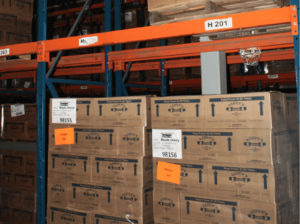Metrology Glossary: RTD (Resistance Temperature Detector)
What Is A RTD (Resistance Temperature Detector)?
A Resistance Temperature Detector (RTD) is a sensor used for temperature measurement based on the principle of how the electrical resistance of a metal changes with alterations in temperature. RTDs are particularly known for their precision and reliability in temperature sensing applications. These sensors are constructed with a metal element, often platinum, which exhibits a predictable and linear change in resistance as temperature shifts. The RTD’s resistance increases with rising temperature and decreases as it cools. This change in resistance is precisely calibrated and can be used to provide highly accurate temperature readings, making RTDs a valuable tool in various industries.
What Are RTDs Used For?
Industrial Applications:
- Power Generation: RTDs are employed to oversee temperatures in boilers, turbines, and critical components, facilitating efficient operation and preventing potential overheating.
- Oil and Gas: RTDs play a vital role in ensuring the safe and optimal processing of fluids in pipelines, refineries, and storage tanks by providing accurate measurements of fluid temperatures.
- Chemical Processing: RTDs are used to monitor reaction temperatures in vessels and reactors, contributing to precise control and maintaining the quality of chemical products.
- Food and Beverage: RTDs are essential in maintaining proper temperatures during food processing, storage, and packaging, ensuring food safety and quality by monitoring critical points.
Aerospace and Automotive:
- Aircraft Engines: RTDs are employed to monitor engine temperatures, ensuring optimal performance, preventing overheating, and contributing to passenger safety and engine longevity.
- Automotive Engines: RTDs track coolant and exhaust gas temperatures in automotive engines, enhancing overall engine efficiency and aiding in emission control.
Medical and Scientific:
- Medical Equipment: RTDs play a critical role in ensuring precise temperature control in sterilization equipment, incubators, and various medical devices.
- Scientific Research: RTDs are integral in experiments requiring accurate temperature measurements, including material testing and biological studies.
Building Automation and HVAC:
- Temperature Control Systems: RTDs are utilized to monitor and regulate temperatures in buildings, promoting optimal comfort and energy efficiency.
- Data Centers: RTDs are crucial in data centers to ensure proper cooling of servers and equipment, preventing overheating and minimizing the risk of system failures.










